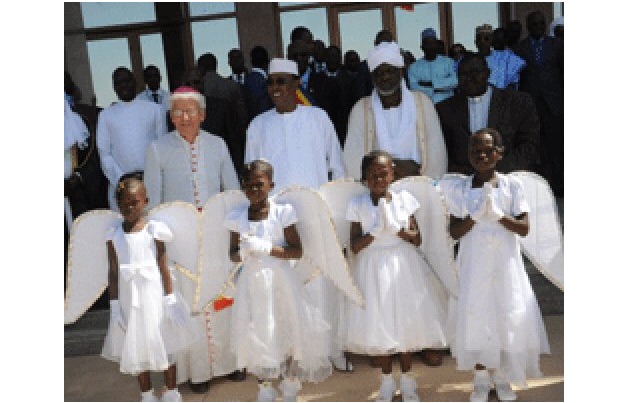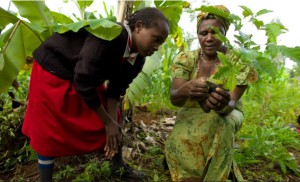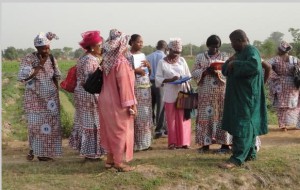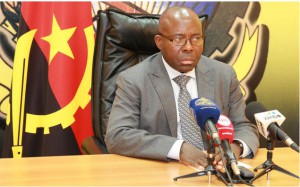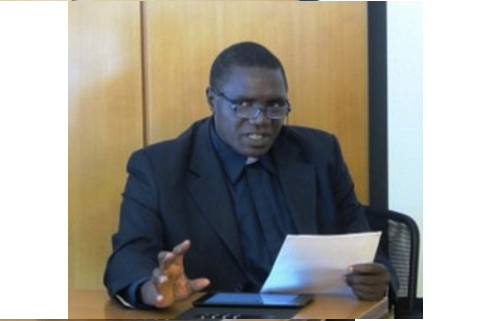. SUSTAINABLE DEVELOPMENT .
From an email and article by the African Wildlife Foundation
This sixth Forum on China-Africa Cooperation (FOCAC), held Dec. 4–5, marked the first time the illegal ivory trade was featured on the forum’s agenda. Leading up to the forum, the China-Africa Wildlife Conservation Council, an African Wildlife Foundation (AWF) and Aspen Institute initiative comprised of Chinese and African civil society leaders and celebrities, worked tirelessly to position wildlife issues as a priority to be included on the traditionally development-focused diplomatic agenda.

Members of the China-Africa Wildlife Conservation Council discuss ways to work together to protect Africa’s wildlife and wild lands. Photo credit: Rodger Bosch/AWF
“Because the role that China plays in [the FOCAC] agenda is significant and by all accounts game-changing, it has a responsibility as well as an opportunity to help ensure Africa’s elephants, rhinos and other wildlife have a future in the modern Africa rising up before us,” says AWF CEO Dr. Patrick Bergin. This high-level dialogue is focused on strengthening the collaboration on economic development between China and 50 African countries, and the inclusion of the illegal ivory trade positions wildlife trafficking as a focus of ongoing relations between China and African countries.
The China-Africa Wildlife Conservation Council is a group of civil society and business leaders convened by the African Wildlife Foundation and the Aspen Institute to serve as a people-to-people platform for supporting China-Africa cooperation on wildlife and wild lands conservation, sustainable economic development, and governance. This Council exists as a cultural and economic exchange to deepen cooperation and support the governments of China and the African states in the joint commitment to protecting and African wildlife and expanding wild lands conservation as the foundation of a sustainable human economy in Africa.
Following two years of work, the group met the week of December 3 for a three-day field visit and roundtable in Kruger National Park, facilitated by the African Wildlife Foundation (AWF) and the Aspen Institute. Chinese film star Wang Baoqiang and Tanzanian singer-songwriter Alikiba joined the delegation.
(Continued on right side of page)
What is the relation between the environment and peace?
(Article continued from left side of page)
Following the roundtable, the Council has released a statement supporting the governments of China and the African states in their active commitment to conserve Africa’s wildlife, recommending that China strengthen its ongoing collaboration with African countries to conserve natural wild land habitats by expanding the continent’s protected area system. The group has also recommended that the FOCAC Declaration and Action Plan explicitly reference the need to set aside and protect large areas for terrestrial and marine conservation. (See “Statement from the China-Africa Wildlife Conservation Council” for more detail.)
“In the lead up to this year’s FOCAC, we have held a number of meetings in Beijing, Nairobi and Kigali, where we have discussed extensively the illegal wildlife trade that is fueling the poaching in Africa,” said Dr. Patrick Bergin, African Wildlife Foundation CEO. “This trip gave dialogue participants a chance to see and hear firsthand about the devastation that poaching has wrought on Kruger’s rhino population.” As of August this year, South Africa had lost 749 rhinos, the majority from Kruger.
For many of the participants from China, including actor Wang Baoqiang, the trip to Kruger was their first time visiting a national park in Africa. “I have always loved being out in nature, and I enjoyed seeing Africa’s elephants, rhinos and other wildlife for the first time,” said Wang. “The upcoming summit in South Africa highlights the strong relationship between China and Africa, and I am happy to be a part of the discussions around how all Chinese and Africans can work together to ensure sustainable development in Africa.”
Singer-songwriter Alikiba, who is a wildlife ambassador in his native Tanzania, noted that celebrities as well as government leaders and conservationists have a role to play in protecting wildlife. “My country has lost many of its elephants in the last few years due to poaching, and we must all find ways to work together to stop the killing and safeguard our wild lands,” said Alikiba. “As a musician and artist, I am using my platform to bring attention to this crisis and inspire people to get involved.”
Key outputs from the initiative to date have included:
A formal recommendation—supported by former Presidents Festus Mogae of Botswana and Benjamin Mkapa of Tanzania—promoting the protection of Africa’s wildlife and wild lands as a priority in the continent’s development agenda was integrated into the African Union’s final Vision 2063 document.
A formal proposal to include topics of wildlife and wild lands protection within the 6th Forum on China–Africa Cooperation (FOCAC) was submitted to the African Ambassadors Group in Beijing, along with supporting technical information to serve as a resource for submitting these issues into the formal FOCAC process.
A proposal to include wildlife on the diplomatic agenda of FOCAC was also submitted directly to South Africa’s Departments of Environmental Affairs and Tourism. In response, the Department of Environmental Affairs requested the submission of formal commitments for inclusion in the FOCAC action plan.
(Thank you to Janet Hudgins, the CPNN reporter for this article.)
